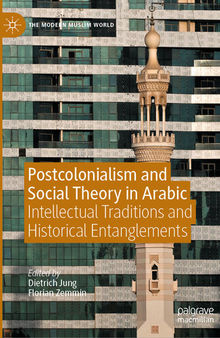 جزییات کتاب
جزییات کتاب
Since Edward Said’s publication of Orientalism in 1978, so-called Western social theory and its claim to universal analytical validity has been exposed to severe criticism. Scholars from the field of postcolonial studies were most vocal in criticizing the Eurocentric nature of the conceptual apparatus of the social sciences. Indeed, contemporary social theory almost exclusively refers to the historical experiences of Western Europe and North America. Yet what is the alternative to these Eurocentric frameworks? Many postcolonial critics use very few non-English sources and tend to focus on the deconstruction of European and American theories.The chapters of this volume provide a turn of perspective. The authors critically reflect upon the concepts of so-called Western social theory by engaging with social science literature and social theory in Arabic. Questions addressed include: What are the concepts, themes, and historical narratives in contemporary Arabic social theory? In which ways do Arab social theorists provide us with alternatives to the conceptual apparatuses employed by so-called Western social theory? To what extent are Arab and Western social theories entangled with each other?



 دانلود کتاب
دانلود کتاب

 جزییات کتاب
جزییات کتاب

 این کتاب رو مطالعه کردید؟ نظر شما چیست؟
این کتاب رو مطالعه کردید؟ نظر شما چیست؟
